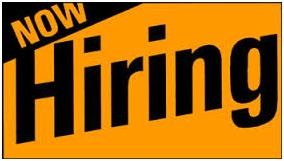Key Career Skills for Personal Fitness Trainers
Post Views 6Fitness trainers help people achieve their health goals through exercise and nutrition. The rewards are in the results. This flexible, people-oriented job requires very specific certifications though; and to be successful, a personal trainer must have skills that aren’t necessarily taught in any seminars or workshops. We asked a number of specialists in the fitness industry what they look for in trainers and what certifications are necessary to be well-qualified, and here is what they said:
A personal trainer should be nationally certified by one of the larger, national certifying entities like ACE, ACSM, NASM, or the like. This, however, is just the first step. After the certification process, they need field experience. This is a process that my company does with new trainers, however many other business owners won’t take the time to invest in newly certified trainers. It is well worth it as the longevity of the relationship and the results with the clients is repaid 10-fold. There are so many elements to consider when training a client. Safety is of the utmost concern and just having a certification doesn’t give the trainer the physical experience of working with a client- especially when clients have some musculoskeletal issues. We spend so much time repairing what untrained trainers do to damage the joints of their clients.
So in summation, to be successful the trainer should really ask a company if they can intern and shadow a seasoned trainer. Although there is no pay, the education is invaluable!
Christine King, MES
President
www.LifeOnlyBetter.com
The skills of a successful trainer include organization, empathy, and an understanding of human behaviors. While you may think it odd that I haven’t mentioned anything about anatomy and physiology, those factual subjects can be learned quite easily. Without the other skills, though, the trainer will not be able to create the atmosphere of trust and confidence that is essential for the client’s success. Being able to keep each individual’s goals and needs in mind and treating each client as if he is the only client is the real secret to trainer success. Certifications are important for both the trainer and the client. They prove a certain level of focused knowledge. Certifications that are endorsed by the NCCA are the most sought-after and well-respected programs. While individual clients may not care about where a trainer certified, quality employers do. Continuing education programs are offered by most of the major certifying bodies, and they help the trainer stay up-to-date with research and programming– and they allow the trainer to offer the latest-and-greatest in fitness trends to their clients.
At a minimum, trainers should have a high school diploma. Trainers who have at least some college education are likely to be hired on at a higher rate of pay. (IDEA Fitness Journal, Sept 2013). While it may be helpful for trainers to study physiology, exercise science, or some other related field, it’s not an absolute necessity. Anyone who has a thirst for knowledge and it willing to learn can be quite successful in the fitness industry.
Karen Shopoff Rooff,
Certified personal trainer and former college professor, business coach and owner of EQUIP
www.gotoequip.com
I’ve been a personal trainer for 30 years. I like to say our industry is a “BUYER BEWARE industry” since we are not regulated and anyone can become a personal trainer. I have my own private studio for 15 years now with no employees but before that I was a fitness director with 14 trainers working for me. My approach to degree vs. non-degree is very controversial within my industry. Before I was hired to be the Physical Director of Sports and Fitness at a YMCA, their policy was “only candidates with a degree” would be considered. I was able to talk to the Executive Director and was hired. They gave me 90 days to turn around all Adult and Youth Sports Programs and fitness-and I did. There is something to be said for years of experience in this industry and it must be seriously recognized for the health and safety of our clientele. (I had an college intern every year for 10 weeks over the summer and all told me they learned more from me in 10 weeks than from their teachers/professors on how to run a business and how to teach fitness, movement and safety to our clients.)
As Director at the Y, my interview process was half in the gym with them training me and half in my office. If they didn’t pass the training part we never got to the office. I’ve hired people with fitness certifications over people with 4-year degrees. Just because you have a degree does not mean you know how to teach the movements; it just means you’re text book-read and can take a test. Also as a director I had/have an issue with the ACE Personal Trainer Certification in which you read their $100+ book, and you color in the dots for the right answer-there’s no teacher, no instruction, no practical testing… you sit at a “test site” with someone watching you, take the test and leave and of course paying another $100+.
As far as skills, a trainer needs to train…. sounds funny but there are many un-fit trainers out there. Also a trainer needs to be a people person. You’d be surprised how many people I’ve interviewed over the years who were like a wet wash cloth. One of the reasons women come to train with me is that I’ve battled the weight thing and personally lost 60 lbs three times. I’ve been on that yo-yo, merry go round. So when I say, “I understand,” I truly do. I have clients who have been with me for 17+ years. I love my job, I love my clients.
Suanne Rieker
RIEKERFIT LLC
www.riekerfit.com
- Needs to know how to perform fitness assessments properly. E.g.: test body composition, body weight, girth measurements, blood pressure, heart rate and various strength and flexibility tests.
- Knows how to demonstrate proper exercise movement and form. This is very important to ensure safety and constant improvements.
- Needs to be able to provide proper coaching, instruction and motivation during a client training/workout.
- Have a working knowledge of the human body (i.e. muscles, movements, functions) and be able to provide appropriate exercises for client’s goals.
- Needs to know how to reduce the risk of injury and develop quality safe programming for each client or class. Know and understand various coaching methods and styles.
- Needs to have some education and knowledge in various health and fitness topics to provide ongoing health and fitness education to clients. Being able to help them make fitness a lifestyle is very important.
- A good trainer knows the material, lives it, breathes it, and can infuse their own experience into it. They may not know every facet, but they know where to get answers if they don’t.
- Have some managerial skills to be able to manage all clients, scheduling, fitness logs and workouts.
- A good trainer makes delivering a class look easy and seamless.
- Good communication skills so you can be effective with clients. You must be comfortable conversing in person and on the phone, know how to conduct yourself professionally and deliver clear instructions to the clients.
- Constantly seeks to improve client’s experience. You want to make it enjoyable and fun, especially when working with beginners.
- People skills and personality: You must love working with people!
- Need to have humility and empathy. You have to be willing to listen to your clients and understand what they are capable of and what their goals are so you know how and when to push them outside their comfort zone and help them reach their goals and gains.
- Love what you do. It’s too hard to fake it each and every day.
- Be energetic. Be a motivator, supportive, a mentor and a friend so clients can be accountable to you.
- Must take 100 percent ownership of your clients’ workouts and planning.
- Must be extremely reliable, as you are trying to help people change or improve their performance, health or life. They rely on you.
- The most important quality: Needs to hold certifications and have education. (You are dealing with people’s lives.) A Master of Science degree in exercise physiology or kinesiology and/or certification from a well-recognized body, such as the American College of Sports Medicine (ACSM), the American Council on Exercise (ACE), the National Academy of Sports Medicine (NASM) or the National Strength and Conditioning Association (NSCA) are necessary. An advanced degree indicates that a personal trainer is capable of taking initiative to develop programs and understand methods of research and investigation. A certification indicates that a personal trainer is keeping current with trends in the fitness industry and meets necessary safety and efficiency standards.
Boris Sapone
Owner and head coach of Colosseum Training Center
www.colosseumtraining.com
To be a quality and successful personal trainer, the most important skills
you must possess are the ability to listen and understand the wants and
needs of potential clients. The true sign of a great personal trainer is when a client feels comfortable and confident that you are the person who will get them to the level of health and wellness that they cannot achieve alone. Showing empathy and compassion and the ability to convey this are key elements in making clients feel comfortable.
Having a degree and certification are beneficial when it comes to creating a program for a client, but they don’t mean anything if you can’t get to the emotional root of why this person is asking for your help. This only comes from experience and cannot be found in any textbook or any standardized test.
We put too much emphasis on how cool the workout is, how attractive the trainers
are, and how many letters fit behind your name on a business card.
Not enough attention and energy are going toward what the actual profession
is: a personally professional relationship between a client and
a trainer. It’s a relationship where there has to be a certain level of humility from the trainer. You need that humility because the client is looking to you saying “I need your help to better the one thing I have to spend the rest of my life in.” This person could’ve chosen a multitude of options instead of coming to you-from working out alone at home, getting a gym membership, or not doing anything and just giving up. But they chose you to take care of and be responsible for the one thing they really truly own, their body. If you do not possess this sense of humbleness, then you’re just another fit person in tight clothing waving a meaningless certification around calling yourself a trainer.
As a trainer you need to check your ego at the door because it has nothing to do with you-not how many pushups you can do, what you look like with your shirt off, or what crazy new workout you came up with. It is about the client and their needs and your ability to relate and motivate them in a way to where they truly believe you are the person to get them to their goals.
Maurice Buchanan
Director
Brass Personal Trainers



 Default Immanent: Investors Shrug
Default Immanent: Investors Shrug  Teen Employment Rates Go Down Considerably
Teen Employment Rates Go Down Considerably  Fed Study Shows Americans Have Recovered Less than Half Their Recession Losses
Fed Study Shows Americans Have Recovered Less than Half Their Recession Losses  Newell Rubbermaid to Cut 1,900 Jobs Over Next 2+ Years
Newell Rubbermaid to Cut 1,900 Jobs Over Next 2+ Years  NASA to Cut Jobs at Glenn Research Center
NASA to Cut Jobs at Glenn Research Center  Employment Gap in Minnesota ‘Intolerable’
Employment Gap in Minnesota ‘Intolerable’  Arizona Mine Could Cut 400 Jobs
Arizona Mine Could Cut 400 Jobs  Top 10 Most Popular Granted Career Advice Articles in 2020
Top 10 Most Popular Granted Career Advice Articles in 2020